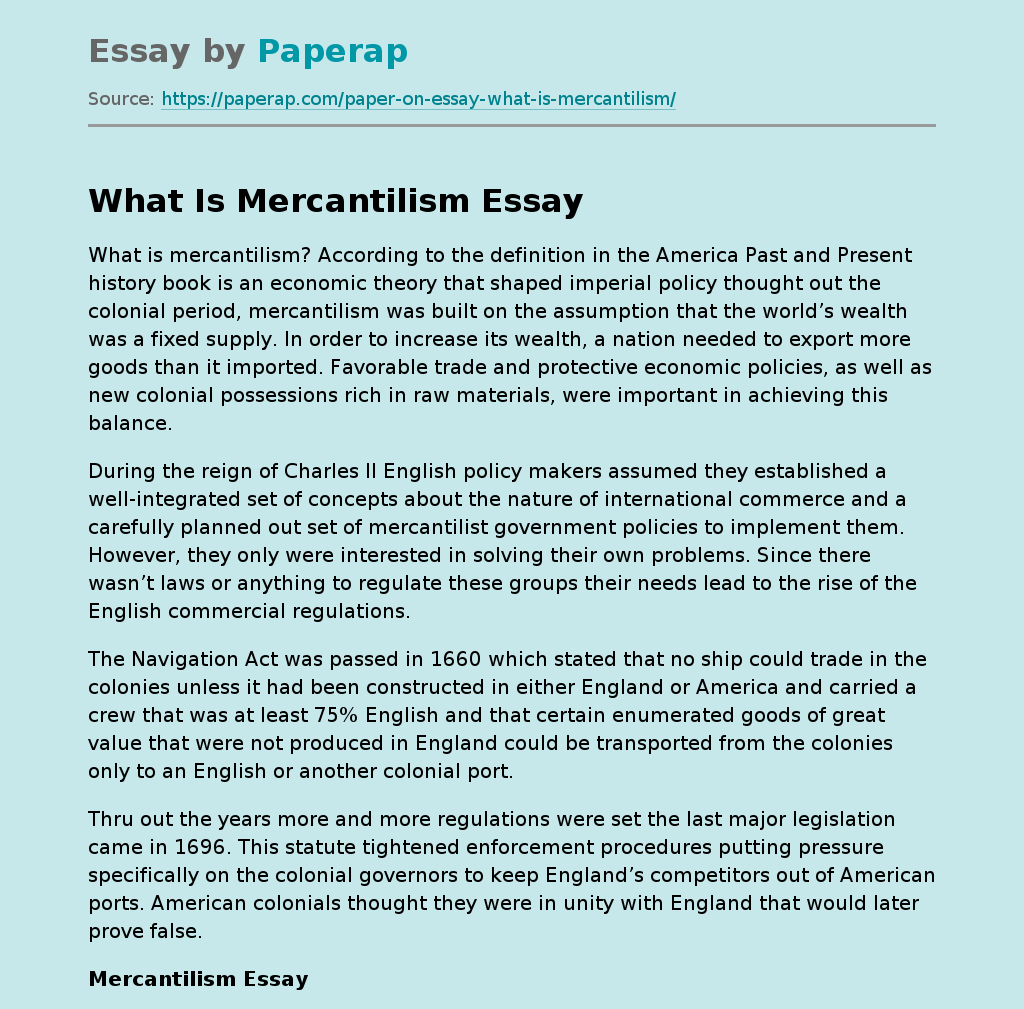What Is Mercantilism
What is mercantilism? According to the definition in the America Past and Present history book is an economic theory that shaped imperial policy thought out the colonial period, mercantilism was built on the assumption that the world’s wealth was a fixed supply. In order to increase its wealth, a nation needed to export more goods than it imported. Favorable trade and protective economic policies, as well as new colonial possessions rich in raw materials, were important in achieving this balance.
During the reign of Charles II English policy makers assumed they established a well-integrated set of concepts about the nature of international commerce and a carefully planned out set of mercantilist government policies to implement them. However, they only were interested in solving their own problems. Since there wasn’t laws or anything to regulate these groups their needs lead to the rise of the English commercial regulations.
The Navigation Act was passed in 1660 which stated that no ship could trade in the colonies unless it had been constructed in either England or America and carried a crew that was at least 75% English and that certain enumerated goods of great value that were not produced in England could be transported from the colonies only to an English or another colonial port.
Thru out the years more and more regulations were set the last major legislation came in 1696. This statute tightened enforcement procedures putting pressure specifically on the colonial governors to keep England’s competitors out of American ports. American colonials thought they were in unity with England that would later prove false.
Mercantilism Essay
What Is Mercantilism. (2019, Dec 05). Retrieved from https://paperap.com/paper-on-essay-what-is-mercantilism/

